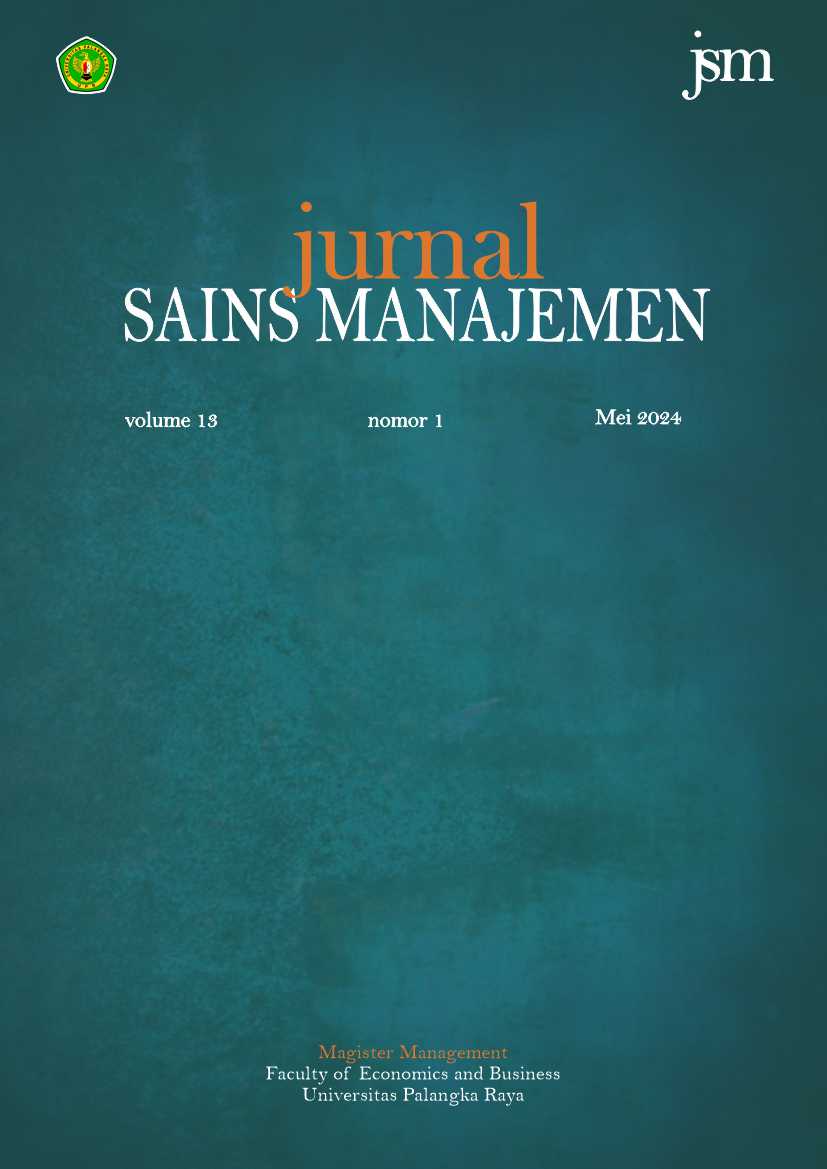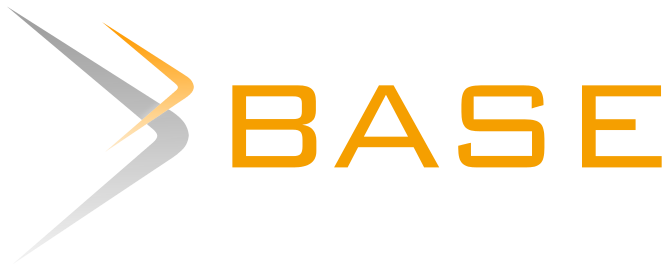Palangka Raya City Community's intent to pay motor vehicle tax at the Technical Implementation Unit, Palangka Raya Regional Revenue Services
Keywords:
attitudes, beliefs, control factors, evaluative, normative, motivational, subjectiveAbstract
This study investigates the impact of attitudes, subjective norms, and perceived control factors on individuals' intention to pay motor vehicle tax and the influence of intention and control variables on post-payment behaviour of motor vehicle tax at UPT PPD Palangka Raya. The utilized framework is the theory of planned behaviour, specifically the evolution of the Theory of Reasoned Action (Fishbein), employing multiple linear regression analytic techniques. Four hundred individuals who made motor vehicle tax payments at UPT PPD Palangka Raya were selected for sampling. The analysis findings indicate that most motor vehicle taxpayers at UPT PPD Palangka Raya are adult government employees (PNS), predominantly male, with a high school education and an income ranging from above 1 million to 3 million rupiahs. However, there is still a deficiency in public confidence towards UPT PPD Palangka Raya as a whole. The provision of motor vehicle tax payment receipts is influenced by factors such as the credibility of personnel, environmental conditions, and technical services. Additionally, close individuals such as family members, close friends, and neighbours can serve as references and motivators for paying vehicle tax. The people of Palangka Raya city demonstrate a strong willingness and punctuality in paying motor vehicle tax, despite income being an inhibiting factor and the law acting as a compulsion factor. The resale price of motorized vehicles also plays a factor in willingness. It is worth noting that attitude has a significant impact on intention, as well as societal norms. Subjectivity does not have a substantial impact on intention. However, control variables have a substantial impact on intention. Additionally, both intention and control factors significantly influence the post-payment behaviour of motor vehicle tax
Downloads
References
Afnibar, A. (2020). Emotional and social character development during growth period. Jurnal of Critical Reviews, 7(8).
Ajzen, I. (2020). The theory of planned behavior: Frequently asked questions. Human Behavior and Emerging Technologies, 2(4), 314–324.
Brand, R., & Ekkekakis, P. (2021). Exercise behavior change revisited: Affective-reflective theory. Essentials of Exercise and Sport Psychology: An Open Access Textbook, 62–92.
Conner, M. (2020). Theory of planned behavior. Handbook of Sport Psychology, 1–18.
Delshab, V., Winand, M., Sadeghi Boroujerdi, S., Hoeber, L., & Mahmoudian, A. (2022). The impact of knowledge management on performance in nonprofit sports clubs: The mediating role of attitude toward innovation, open innovation, and innovativeness. European Sport Management Quarterly, 22(2), 139–160.
Dewi, W. W. A., Febriani, N., Destrity, N. A., Tamitiadini, D., Illahi, A. K., Syauki, W. R., Avicenna, F., Avina, D. A. A., & Prasetyo, B. D. (2022). Teori Perilaku Konsumen. Universitas Brawijaya Press.
Farhan, F. M., Waheed, N. A., & Younis, S. (2020). Impact of service quality and perceived value on the post-purchase intention with the moderating effect of switching cost. Pakistan Journal of Multidisciplinary Research, 1(1), 65–83.
Gaiseanu, F. (2020). Attitude as an expressible info-operational reaction to a perceived/purposed object/objective. International Journal on Neuropsychology and Behavioural Sciences, 1(1), 12–16.
Galesic, M., Olsson, H., Dalege, J., Van Der Does, T., & Stein, D. L. (2021). Integrating social and cognitive aspects of belief dynamics: towards a unifying framework. Journal of the Royal Society Interface, 18(176), 20200857.
Hassan, M. M., Ahmad, N., & Hashim, A. H. (2021). The conceptual framework of housing purchase decision-making process. International Journal of Academic Research in Business and Social Sciences, 11(11), 1673–1690.
Indrianto, A. T. L., Oktavio, A., & Nugroho, A. (2022). Pilgrimage tourism events in Indonesia: Examining the relationship of behavioral belief, motivation to comply, attitudes, subjective norms, and intention to partake.
Intayos, H., Netpradit, N., & Samutachak, B. (2021). A causal effect of customer relationship management, attitude, subjective norm, perceived behavioral control of customer affecting purchase intention to using anti-aging business in Thailand. ABAC Journal, 41(1), 121–145.
Irwansyah, R., Listya, K., Setiorini, A., Musfirowati Hanika, I., Hasan, M., Prambudi Utomo, K., Bairizki, A., Sri Lestari, A., Wahyudi Setyo Rahayu, D., Butarbutar, M., Nupus, H., Hasbi, I., & Triwardhani, D. (2021). PERILAKU KONSUMEN (1st ed.). Penerbit Widina.
Kurdi, B. Al, Alshurideh, M., Akour, I., Tariq, E., AlHamad, A., & Alzoubi, H. (2022). The effect of social media influencers’ characteristics on consumer intention and attitude toward Keto products purchase intention. International Journal of Data and Network Science, 6(4), 1135–1146.
Lim, W. M., & Weissmann, M. A. (2023). Toward a theory of behavioral control. Journal of Strategic Marketing, 31(1), 185–211.
Listiayu, N. K. A. (2024). Pengaruh Brand Equity, Kualitas Produk dan Promosi terhadap Keputusan Pembelian Produk Kerajinan dan Bunga Segar pada Canny Gallery di Denpasar. Universitas Mahasaraswati Denpasar.
Manuere, H. T., Chikazhe, L., & Manyeruke, J. (2022). Theoretical models of consumer behaviour: a literature review. International Journal of Education Humanities and Social Science, 5(2), 105–112.
Mou, J., & Benyoucef, M. (2021). Consumer behavior in social commerce: Results from a meta-analysis. Technological Forecasting and Social Change, 167, 120734.
Patnaik, G. (2021). Positive psychology for improving mental health & well-being. Notion Press.
Petcharat, T., & Leelasantitham, A. (2021). A retentive consumer behavior assessment model of the online purchase decision-making process. Heliyon, 7(10).
Qazzafi, S. (2020). Factor affecting consumer buying behavior: A conceptual study. International Journal for Scientific Research & Development, 8(2), 1205–1208.
Rather, R. A. (2021). Monitoring the impacts of tourism-based social media, risk perception and fear on tourist’s attitude and revisiting behaviour in the wake of COVID-19 pandemic. Current Issues in Tourism, 24(23), 3275–3283.
Santos, S. C., & Liguori, E. W. (2020). Entrepreneurial self-efficacy and intentions: Outcome expectations as mediator and subjective norms as moderator. International Journal of Entrepreneurial Behavior & Research, 26(3), 400–415.
Sok, J., Borges, J. R., Schmidt, P., & Ajzen, I. (2021). Farmer behaviour as reasoned action: a critical review of research with the theory of planned behaviour. Journal of Agricultural Economics, 72(2), 388–412.
Sugiyono. (2017). Metode Penelitian Bisnis (Pendekatan Kuantitatif, Kualitatif, Kombinasi dan R&D). In Metodelogi Penelitian.
Sukma, D. R. A., Putra, H. B., & Sutejo, B. (2023). Sikap, Norma Subjektif, dan Kontrol Perilaku Terhadap Niat Membeli Produk Kosmetik Halal oleh Konsumen Muda. Journal of Management and Bussines (JOMB), 5(1), 833–851.
Syah, R., Darmawan, D., & Syamsuddin, S. (2023). Development of student scientific attitude measurement instruments using the Fishbein and Ajzen Model. Jurnal Penelitian Dan Evaluasi Pendidikan, 27(2), 226–241.
Yasir, N., Mahmood, N., Mehmood, H. S., Rashid, O., & Liren, A. (2021). The integrated role of personal values and theory of planned behavior to form a sustainable entrepreneurial intention. Sustainability, 13(16), 9249.
Zhuang, X., Hou, X., Feng, Z., Lin, Z., & Li, J. (2021). Subjective norms, attitudes, and intentions of AR technology use in tourism experience: The moderating effect of millennials. Leisure Studies, 40(3), 392–406.



